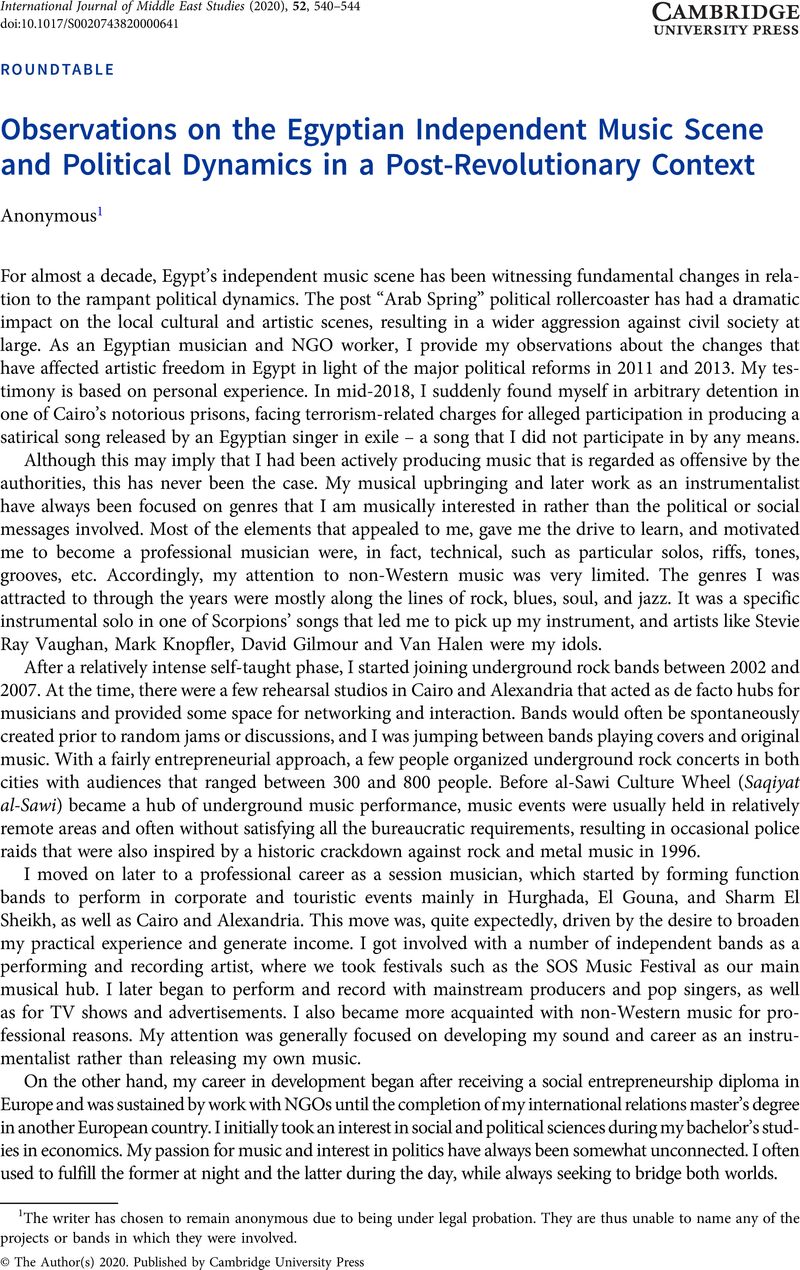Published online by Cambridge University Press: 07 September 2020

The writer has chosen to remain anonymous due to being under legal probation. They are thus unable to name any of the projects or bands in which they were involved.
2 The entertainment tax (ḍarbīyat al-malāhī) is in addition to income tax and to taxes collected by the Musicians Syndicate for each performer. Many independent and mahragānāt musicians are not members (and are not allowed to be members) of the Syndicate, which requires that they pay bribes to the Syndicate in order to perform.